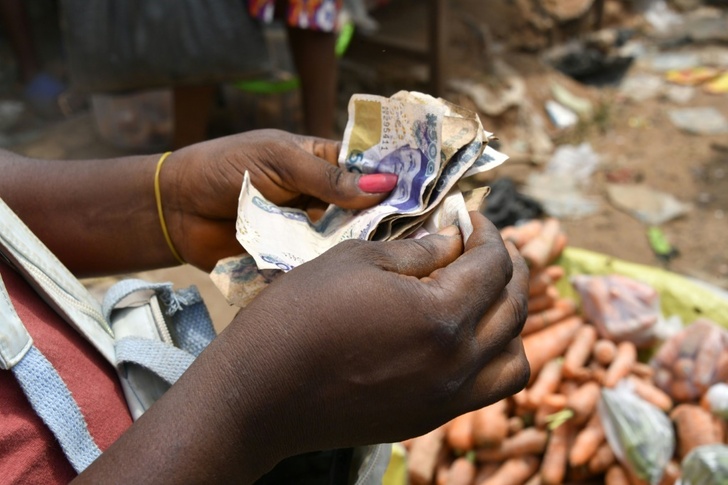A lingering cash crunch in Nigeria, which saw long lines of customers at banks and cash dispenser machines was easing on Wednesday after the central bank reissued old naira notes back into circulation.
The queues at banks in Lagos and most cities had started disappearing since Monday as most customers began to be able to access physical cash.
The National Labour Congress (NLC) union movement had threatened strikes over the cash scarcity starting Wednesday, but on Tuesday announced they would postpone for two weeks to monitor how Nigerians were accessing cash.
"Yes there is compliance, but the NLC.... doubted the sustainability of that compliance," Joe Ajaero, NLC president told reporters. "We felt we have to monitor this compliance for the next two weeks."
The cash shortages began in October when the Central Bank of Nigeria (CBN) gave a February 2023 deadline to change old 200, 500, and 1,000 naira bills for new redesigned ones.
The policy was intended to promote cashless transactions in a country where many businesses operate in the informal sector which relies on cash and hardly uses the banking system.
According to the CBN, the policy was also aimed at mopping up excess cash outside the banking system, counter corruption as well as discourage ransom payments to bandits and kidnappers terrorising the nation.
The cash crisis also hit during campaigning for the February 24 election to chose the successor for President Muhammadu Buhari.
Former Lagos governor Bola Tinubu won that ballot though opposition parties are contesting the results in court claiming vote rigging and other illegal activities.
Still, the implementation of the cash swap caused hardship for most Nigerians as long queues of depositors formed outside banks and ATMs.
Some people slept outside banks with little hope of getting cash, which many Nigerians use for market shopping and transport.
Protests broke out in several cities over the cash shortages.
Some states took the federal government to court to force a reversal of the policy.
The court ordered that the old naira notes of 200, 500 and 1,000 should be allowed to circulate along with the new ones until the end of the year.
Buhari in February allowed a smaller note of old 200 naira to re-circulate to ease the scarcity, but problems persisted.
joa/pma/bp
© Agence France-Presse
Your content is great. However, if any of the content contained herein violates any rights of yours, including those of copyright, please contact us immediately by e-mail at media[@]kissrpr.com.
Source: Story.KISSPR.com

